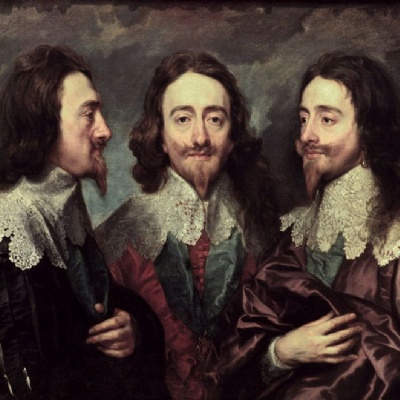The Past May Not Be A Foreign Country

I said last week that I am currently teaching the social and economic history of the seventeenth century to my Lower Sixth class. We spent last term looking at the various political and religious upheavals of the period, not least the execution of Charles I in 1649 as the culmination of the years of Civil War, when the country divided almost exactly down the middle in an argument about its future direction and the relationship between the people and their rulers – sound familiar?!
One of the real pleasures of being a history teacher for more than a few years has been the opportunity to develop a detailed knowledge and understanding of a broad sweep of the past. In my first secondary teaching post, I was asked to teach a depth study on the Third Reich, which included the use of translated documents from the time and which helped to give me a very solid grounding in the topic.
When I became a head of department, the opportunity arose to broaden my teaching horizons to look at a wider range of the twentieth century’s less charming characters, with a focus on Stalin, Mussolini and Franco as well as Hitler. With acute awareness of sounding like someone from an older generation decrying the fickleness of youth, this was back in the days before A Level reforms, when each exam lasted three hours and required four essays to be written in that time.
Growing interest from pupils, despite the challenges of content and exams, allowed the creation of a second teaching group a few years later, so I took the opportunity to try something different by offering a paper on the Tudors. While I knew the basic outline, from the Battle of Bosworth via Henry VIII’s Break with Rome, Edward VI’s Book of Common Prayer and ‘Bloody Mary’ to Elizabeth I, the Spanish Armada and Shakespeare, it was a genuine pleasure to read more about this fascinating period to develop the expertise needed to teach it.
If you are ever stuck for someone to tell you about Cavour, Garibaldi and Italian Unification or Bismarck and the Schleswig-Holstein Question in the nineteenth century, I could also probably help, but I thought when I came to Radnor House that I was probably done with learning new topics. However, when a change of personnel left a knowledge gap in the A Level teaching, I threw myself on my sword and offered to pick up the unit on the Stuarts.
I confess that this period would not have been my first choice, but I have to say that I have really enjoyed coming to terms with it. The seventeenth century turns out to have been the real turning point between the medieval world and the modern. I start the course by giving the pupils the preface to a book about the period written by Mark Kishlansky, where he highlights the extraordinary changes that came about in the 1600s.
There was the birth of the modern business world, with the founding of Lloyd’s of London, the Stock Exchange and the Bank of England. The Royal Society was set up, backed by Charles II, chaired by Isaac Newton and featuring the work of Boyle, Hooke and Halley. Its motto is Nullius in Verba – ‘take nobody’s word for it’, typifying the new desire to experiment and reject existing dogma. Literature flourished with such giants as Milton, Dryden and Bunyan, and architecture reached new heights, literally and metaphorically, with Wren, Hawksmoor and Inigo Jones.
Arguably the most important development was the move from international insignificance and isolation to laying the seedbed of the British Empire that would come to dominate the world. The growth of the navy, colonisation of America and the Caribbean, and the development of a global commercial network was an astonishing achievement and marked a period of extraordinarily rapid development.
Alongside all this progress, however, they were still executing people for witchcraft up to about 1680 and most people lived at a level of poverty we could not begin to comprehend. Average life expectancy was about thirty years and it was unwise to invest too much love in your children until they were about ten years old, because most of them did not live long enough to reach double figures.
There is always a danger when looking at the past that we think of people as less intelligent and less sophisticated than we are, so I always do my best to warn my students to avoid thinking like this. In another four hundred years, people will probably laugh at us because we have not yet cured cancer and think the internet constitutes progress, or even that we are still living on a dying planet. They will no doubt think we are stupid and bemoan our lack of wisdom, yet we believe ourselves to be at the height of our powers.
I’ve used it before, but I really enjoy the observation I heard a couple of years ago from Professor Barry Hymer, a staunch advocate of the growth mindset school of thought, who said that answers are only temporary resting places in our current understanding – how very true!